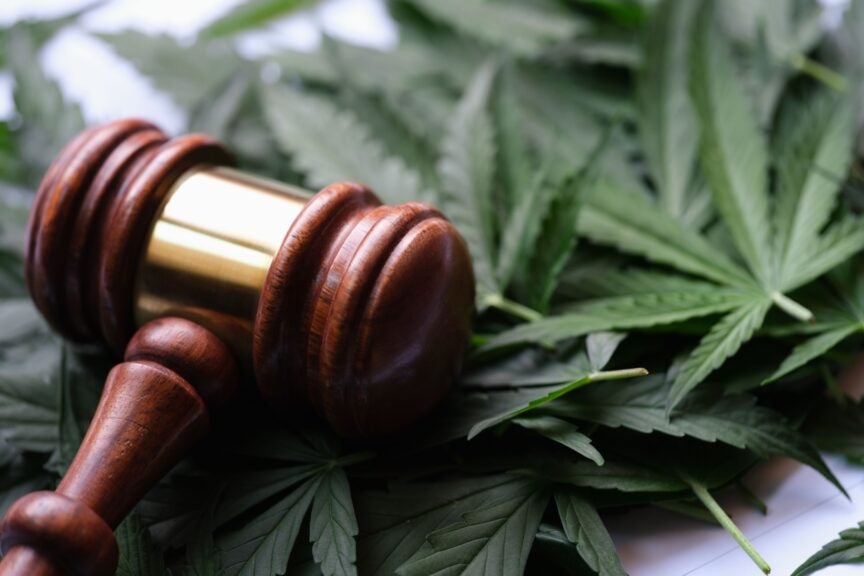Pennsylvania Legislative Black Caucus said Tuesday that any cannabis legalization law must contain policies concerning restorative justice and social equity.
Members of the Caucus said that any bill carries a risk of failing without their support, writes CNHI News.
“It is time that we invest in the restoration of communities that have been impacted, we return incarcerated persons to their families, and we provide entrepreneurs with a pathway to lead in this emerging marketplace,” Rep. Napoleon Nelson, chair of the Pennsylvania Legislative Black Caucus, said during a press conference in the Capitol Rotunda.
More than a dozen representatives and senators came together in the State Capitol Rotunda to present their requests for a cannabis adult-use program.
Gov. Josh Shapiro (D) called on lawmakers to legalize cannabis in his budget address in February. Policymakers and advocates are no longer quite so optimistic that reform will take place any time soon. The Citizens’ Voice’s Stephen Caruso recently pointed out that opposition from a “lawmaker who controls what legislation the GOP-majority state Senate considers,” is still strong.
Nonetheless, as lawmakers continue to work on various proposals legalizing recreational marijuana, the Black Caucus is making sure they address important issues.
Read Also: Pittsburgh PA Bill Seeks To Protect Medical Cannabis Patients From Job Discrimination
Can’t Get It Done Without Black Caucus
“If what comes forth is perfunctory, symbolic, performative, I don’t imagine the Black Caucus will be down,” Rep. Christopher Rabb, (D), said. “You can’t get it done without the Black Caucus.”
The economic potential of recreational cannabis in the Keystone State is huge, according to some estimates.
“We’re losing out on an industry that, once fully implemented, would bring in more than $250 million in annual revenue,” Shapiro said at the time. “And our failure to legalize and regulate this only fuels the black market and drains much-needed resources for law enforcement. It’s time to catch up.”
Furthermore, an analysis by FTI Consulting suggests the state could see up to $2.8 billion in sales and create nearly 45,000 jobs during the first year of operations, highlighted Green Market Report’s John Schroyer.
While all this is significant, the Black Caucus reminded that it is important to do it right from the start. “Not just in terms of how much money we bring into state, but how we can help repair society from a place of public health and wellness and also social equity,” said Rep. Chris Rabb (D), as reported by Abc27.
What Are They Asking?
Members of the Black Caucus are calling for automatic expungements for those previously convicted and including parole violations, reimbursement of assets forfeited during marijuana-related arrests, re-sentencing and exoneration.
“Black and brown people, particularly black people, have been getting arrested, incarcerated for marijuana for decades,” said Rep. Rick Krajewski (D).
Further, the Black Caucus members are also urging for the establishment of a cannabis development fund under a new office of social equity.
“This development fund would be able to reinvest in recidivism programs, land banks and transitional housing opportunities, community parks and recreation centers, street cleaning efforts and other development initiatives,” said Rep. Nelson.
The fund would be financed by cannabis tax revenue, licensing fees and initial appropriation.
Read Next:
To learn more about new cannabis laws, industry impact, social equity and everything in the space come, join us at the 19th Benzinga Cannabis Capital Conference, coming to Chicago this Oct. 8-9. Get your tickets now before prices surge by following this link.
Photo: Courtesy of H_Ko via Shutterstock




